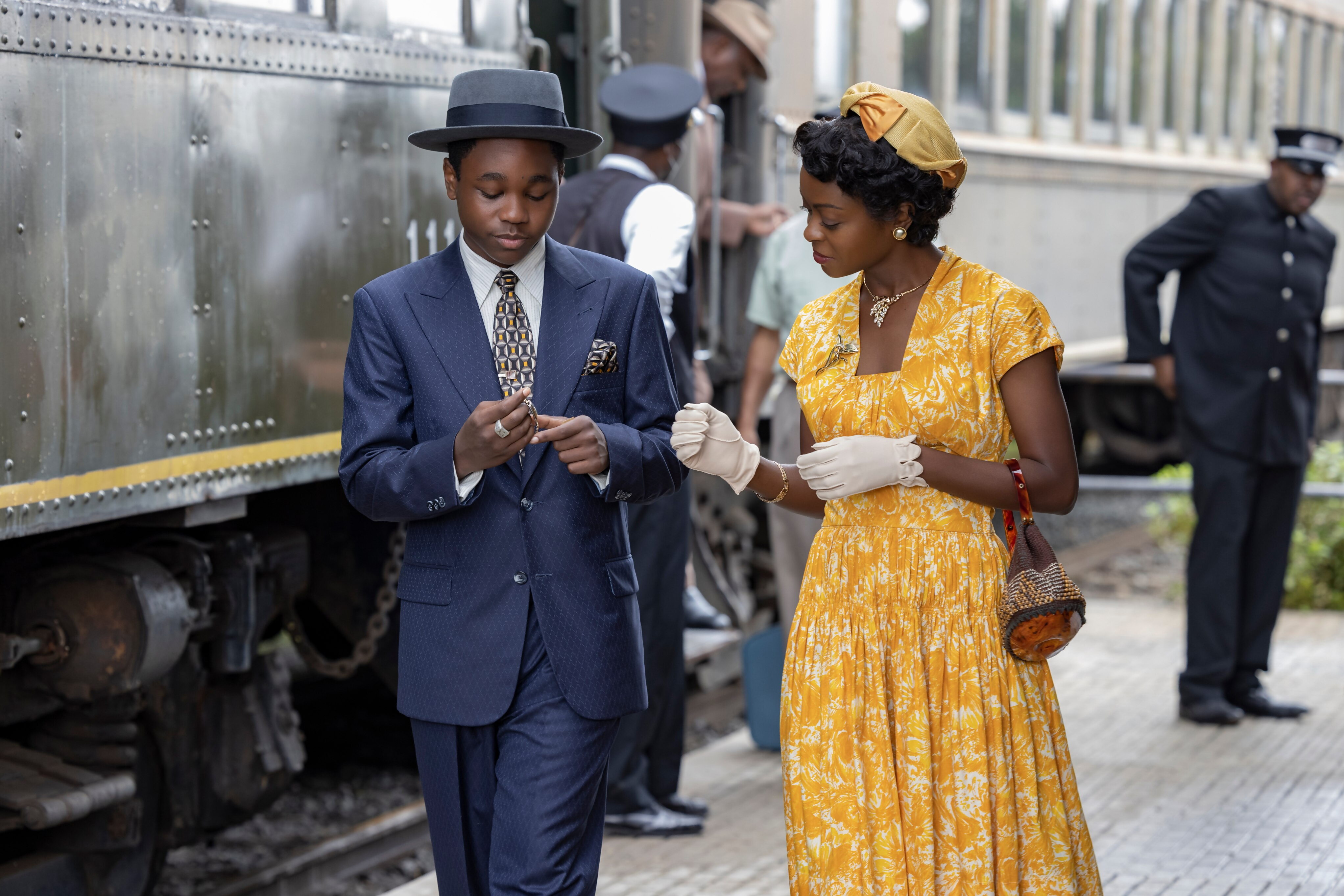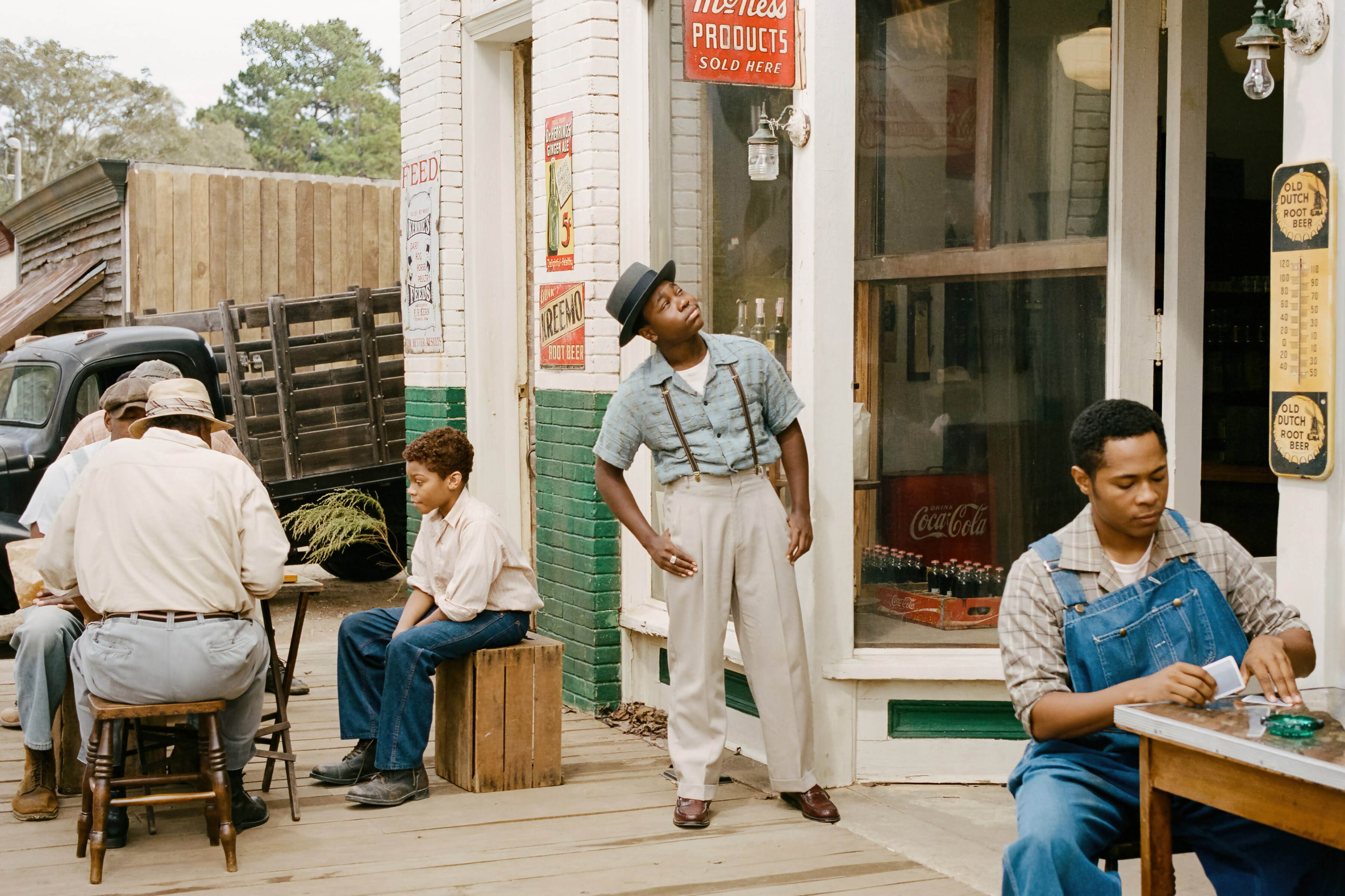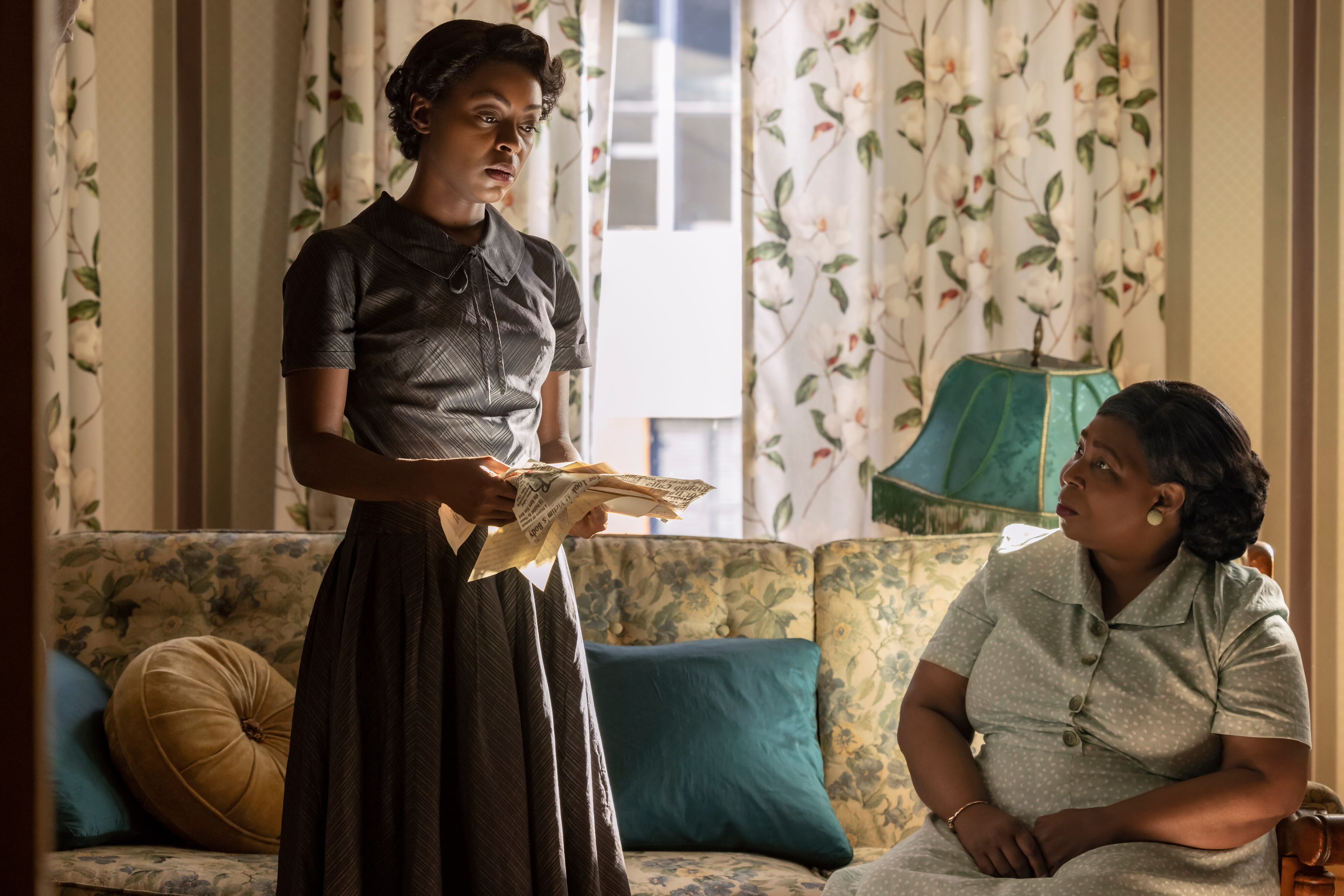
★★★★☆
If you haven’t seen director Chinonye Chukwu’s superb drama Clemency, I’d suggest you waste no time in seeking it out. In many ways, Till is a step up from that low-key, yet incredibly effective Clemency. Unfortunately, Till often lacks the intimacy and immediacy of Chukwu’s previous work.
The story is set in August 1955. Emmett Till leaves his mother behind in Chicago to go visit his cousins in Mississippi. As we all know, Emmett was brutally lynched and killed. Till isn’t so much the story of Emmett, but of the aftermath of his death through the eyes of his mother, Mamie (Danielle Deadwyler).
Played by Jalyn Hall, Emmett is a lively, joyful boy. A child. Desperate to be a man, he innocently comments on Haley Bennett’s Carolyn’s beauty at the local store, an innocent act which has fatal consequences. He didn’t know better, paying a compliment to a white woman, despite his mother’s numerous warnings to keep his head down.

Credit: Universal Pictures
Chukwu carefully and delicately handles the story. She directs Till with elegance and fluidity, but also rage and frustration. Chukwu gets to operate on a bigger scale here; this is grandiose filmmaking with a huge story and even bigger emotions involved. But thankfully, Chukwu doesn’t rely on sentimentality to tell this vital, urgent story.
This is a brutal, often triggering and traumatising film. Chukwu refuses to turn her camera away from Emmett’s bloated, bruised and bloody body.
At first, this seemed exploitative, like a cheap way to buy our sympathy. But just as Mamie explains why she needs people to see Emmett’s body and the damage done to it, the ways it was violated and mutilated, it’s important for us to see and understand the severity of the crime, to see the consequences of racial hate.
Danielle Deadwyler is the heart and soul of the film. Her performance is heart-breaking and powerful. She’s supported by equally great performances, but this is her film. She’s in nearly every scene and completely carries the film on her shoulders.

Credit: Universal Pictures
If Clemency was quietly devastating, Till is loud and brash. It’s overwhelming in its treatment of grief and loss, but every so often, it slips into melodrama before regaining its composure. Mamie often weeps and wails for her son, but the more theatrical the scene gets, the more it makes grief into a spectacle, the less powerful it is.
Till tends to be better in its second half, as Mamie travels to Mississippi for the court case. Deadwyler is allowed to bring some nuance into her performance and cinematographer Bobby Bukowski’s close-ups are intoxicating and disarming in their honesty.
Chukwu’s work here is constantly compelling, but also overly familiar in its form. Ultimately, Till is a very traditional film about racism and racial violence. It’s best at its more quiet moments; when Mamie arrives back in Chicago after the trial and takes off her shoes and jewellery is somehow more affecting and devastating than anything else in the film.
For Chukwu, Till is another victory, even if it can’t quite match Clemency in power. Despite a relatively weak script, Chukwu’s captivating vision and the ability to bring out the very best in her lead actress makes Till an unmissable film this awards season.
Till played at the BFI London Film Festival and is released in UK cinemas January 6, 2023.




